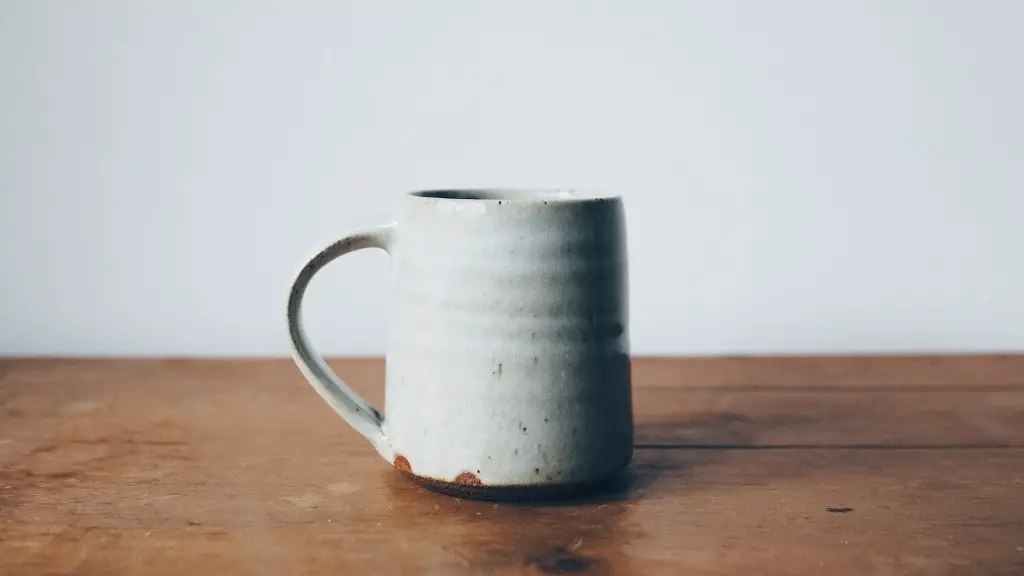Background information
Drinking coffee during pregnancy is a common practice among expectant mothers. It’s often seen as an easy way to get through the morning, give an energy boost, or satisfy a craving. But, is it safe?
Throughout history, pregnant women have been warned against consuming caffeine, as it’s been linked to some critical health issues. For example, caffeine has been associated with an increased risk of miscarriage, premature labor, stillbirths, and low birth weight.
It’s also been suggested that caffeine can cross the placenta, meaning that the fetus is exposed to the chemical and may be susceptible to its ill effects. This idea instilled fear in pregnant women and caused them to limit or avoid the beverage altogether.
But, is caffeine really that bad for expectant mothers? In the past few decades, studies have been conducted to answer this question, and the answer may surprise you.
Scientific Research
The majority of scientific research supports the claim that consuming small amounts of caffeine during pregnancy is generally safe.
One study, conducted by the University of Montreal, gathered information from over 1,000 expectant mothers. The results showed that consuming one to two cups of coffee per day didn’t increase the likelihood of low birth weight or preterm labor.
More recently, the prestigious Nurses’ Health Study II reported similar findings. After analyzing data from over 48,000 women, researchers determined that pregnant women who consumed under 200 milligrams of caffeine per day were no more likely to experience adverse health outcomes compared to those who consumed none at all.
Further data suggests that pregnant women don’t need to worry about caffeine intake from other sources. Studies from the National Institute of Health, among others, have found that caffeine from sources such as chocolate and tea doesn’t increase the risk of health issues either.
Experts’ Perspectives
When it comes to drinking coffee during pregnancy, the American College of Obstetricians and Gynecologists has a few important pointers.
Firstly, they recommend that pregnant women reduce the total amount of caffeine they consume each day, by limiting their intake to under 200 milligrams. This translates to just one or two cups of coffee, depending on the strength of the brew.
Moreover, ACOG states that pregnant women should avoid energy drinks and similar beverages that contain additional caffeine or other stimulants. These drinks often contain high levels of caffeine and large amounts of sugar and other health-threatening ingredients.
Additionally, the organization suggests that pregnant women look for decaffeinated coffee and other alternative drinks if their cravings can’t be satisfied otherwise.
My Insight
My own research indicates that coffee can indeed be enjoyed during pregnancy, as long as the amount is moderate. While the beverage will not provide essential nutrients that a growing fetus needs, it may alleviate morning sickness and offer an energy boost to frazzled new mothers-to-be.
As with everything in life, drinking coffee in moderation is key. 200 milligrams of caffeine a day is a safe amount for most people, but everyone’s caffeine sensitivity is different. So, if you’re pregnant, it’s best to consult your doctor and listen to their advice.
Statistics
According to statistics collected by the Centers for Disease Control and Prevention, 66 percent of pregnant women in the United States consume caffeine on a daily basis. Approximately 11 percent consume more than 300 milligrams, which is considered to be unhealthy and unsafe.
The figures also show that 78 percent of pregnant women aged 18-44 drink at least one cup of coffee daily. Most of them are unaware that caffeine is a drug, and although small amounts may not be dangerous, large amounts can have serious adverse effects on the mother and her unborn baby.
Pregnancy Guidance
For pregnant women who want to be safe, it is important to understand the amount of caffeine in the beverages they are drinking and the effects that it may have. Beverages like coffee contain about 95 milligrams per 8 ounces. It is best to start with a small amount, like a cup of dark roast, and see how the body responds.
It is also important to remember that caffeine can add up quickly when combined with other sources, like tea, chocolate, energy drinks and certain medications. Reading the ingredients on things like energy drinks, even if they are decaffeinated, is important to ensure the safety of the mother and child.
For pregnant women, a healthy diet is critical for their well-being and that of the baby. Eating a balanced diet heavy in fruits, vegetables and proteins will help to ensure that the fetus is getting the essential nutrients it needs to develop properly.
Food Quality
Apart from caffeine intake, the quality of the food that a pregnant woman eats is also important. Foods full of vitamins, minerals, and nutrients will help to reduce the adverse effects of caffeine consumption and provide the essential resources necessary for a healthy pregnancy.
By choosing high-quality nutritious food items, the fetus can receive the nutrients it needs to build strong bones, muscles, and tissues. Foods rich in proteins, like fish, eggs and nuts, provide amino acids necessary for proper fetal development and health.
Moreover, healthy courses like leafy green vegetables are rich in iron, a key mineral needed to produce red blood cells, while dairy products are packed with calcium that’s essential for bone health.
Alternative Solutions
For some pregnant women, the taste of coffee is hard to resist. However, drinking caffeine during pregnancy can be a gamble. It may offer a pick me up, but if consumed in large amounts, it could also cause bodily harm.
Therefore, expecting mothers may look to alternative solutions if they need an energy boost. Increasing the amount of iron in the diet can help with fatigue, and exercise can help to reduce the effects of morning sickness.
Other things that can help include getting enough rest, eating small, nutrient-packed snacks throughout the day, and
meditating, which has been proven to reduce stress.
Caffeine Consumption Connection
The World Health Organization states that while some research has suggested that drinking coffee during pregnancy can increase the risk of low birth weight, preterm delivery, or miscarriage, it is not clear that there is a direct connection between caffeine consumption and these outcomes.
Coffee contains components beyond caffeine that could also potentially be problematic, like stress-causing compounds, which could potentially disturb pregnancy. The organization also states that people should await further investigation before any definitive conclusions can be made.
While it’s impossible to know whether or not drinking coffee during pregnancy is perfectly safe, the latest science suggests that moderate caffeine consumption won’t affect the baby and, in most cases, won’t cause any harm.


